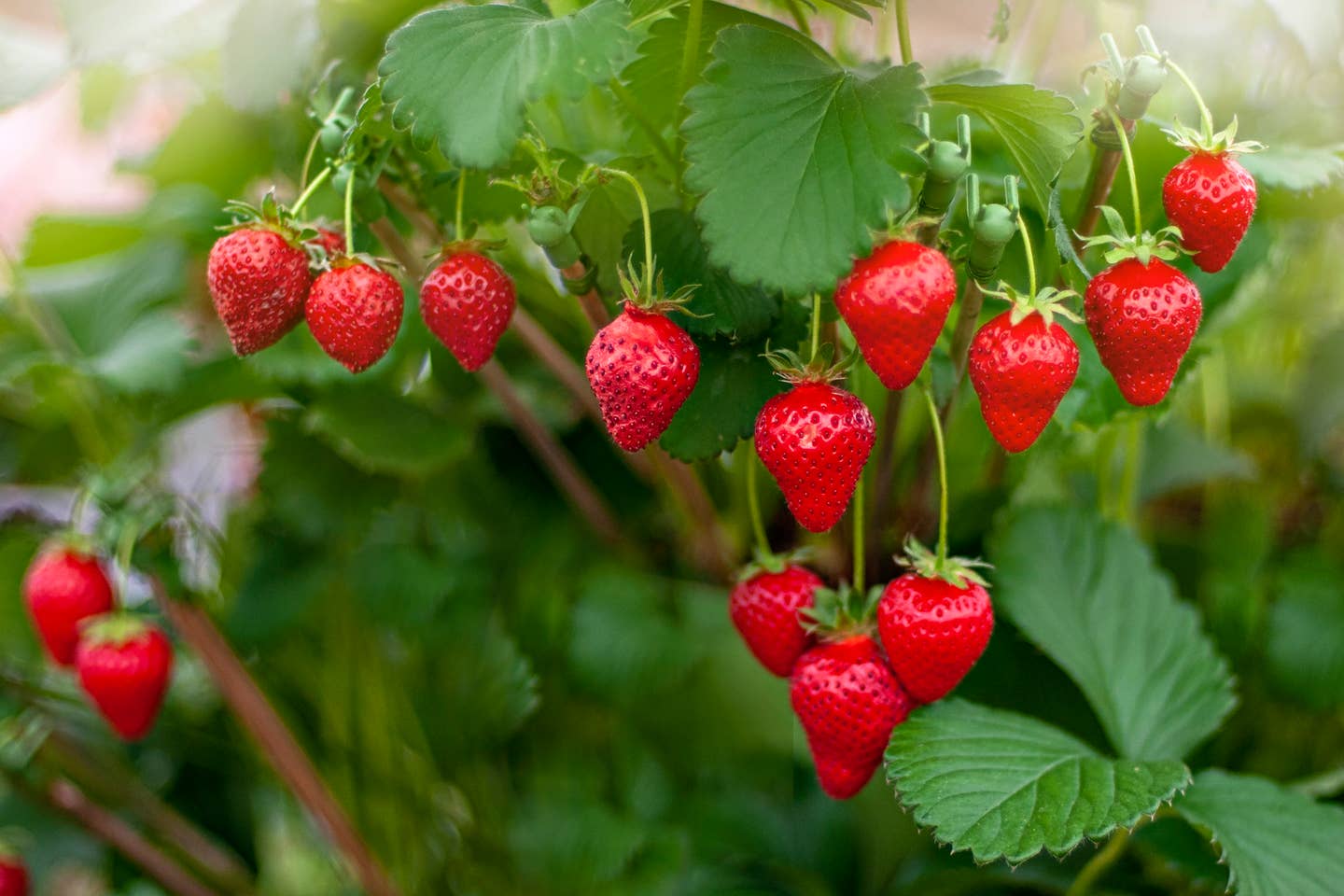
These Are the 12 Fruits and Veggies With the Highest Pesticide Load. Wash Well!
For the third straight year in a row, strawberries top the list of the so-called “Dirty Dozen” fruits and vegetables that have the most pesticides per crop. The guide, released annually by the Environmental Working Group (EWG), rates produce for its pesticide loads on our bodies.
As in previous years, more than 90 percent of samples tested of strawberries, apples, cherries, spinach, nectarines, and kale tested positive for residues of at least two different pesticides. We're not telling you to not eat these, but you may want to consider paying for organic when you hit the produce aisle or supporting your local organic farm or grower. Or simply wash them well with cold water before popping that strawberry in your mouth!
This year, EWG notes that this list should not be confused with precautions surrounding the coronavirus, and all properly handled fresh produce (organic or not) is good for you in the long-run, and generally safe to eat after washing. Two consumer advisories: Be sure to wash your apples, cherries, spinach, and kale as you normally (or peel the nectarines) before consuming and remove the outside leaves from any head of lettuce or kale that you add to your salad.
If you’re looking to decrease your exposure to pesticides, you may want to consider paying the premium to stock up on organic versions of these ten fruits and vegetables.
The Dirty Dozen
- Strawberries
- Spinach
- Kale
- Nectarines
- Apples
- Grapes
- Peaches
- Cherries
- Pears
- Tomatoes
- Celery
- Potatoes
The list adds a 13th, Hot Red Peppers.
At the same time, the group released what it calls "The Clean 15" fruits and vegetables with the least pesticides in your food. So these are the safest if you're trying to lower your overall chemical load on the body:
The Clean Fifteen
- Avocados
- Sweet corn
- Pineapple
- Onions
- Papaya
- Sweet peas (frozen)
- Eggplants
- Asparagus
- Cauliflower
- Cantaloupes
- Broccoli
- Mushrooms
- Cabbage
- Honeydew melon
- Kiwi
EWG noted that this year, popular dried fruit, raisins, should have also made the list of the highest-pesticide load. “If we included raisins in our calculations, they would be number one on the Dirty Dozen™,” said EWG Toxicologist Thomas Galligan, Ph.D. “Although raisins are a popular snack, consumers concerned about their pesticide consumption may want to consider buying fresh or frozen produce from our Clean Fifteen™ list instead.”
Get the full list here. At The Beet, we always want you to eat more fruits and vegetables for your health. Try to get five to nine servings a day. Just be sure to wash the ones cited here as having the most pesticides, or choose the organic versions of those. Stay healthy and well!
Editor's Note. Upon publishing the above piece, we heard from the Executive Director of the Alliance for Food and Farming, which represents conventional and organic farmers alike, with a request to add her comment to the story. Here is what she wrote:
"Consumers who are concerned about residues are advised to simply wash their fresh produce – organic and conventionally grown," says Teresa Thorne, Executive Director of the Alliance for Food and Farming which represents farmers of conventional and organic produce. The Federal Food and Drug Administrationm (FDA) advises: Washing fresh fruits and vegetables under running tap water is a healthful habit and can help remove or eliminate any residues that may be present on fruits and vegetables.
“We simply want people to know that whatever produce they choose – organic or conventional – both are safe and can be consumed with confidence,” Thorne adds. “Be reassured that the correct and healthy choice is to always eat more. Don’t let unfounded safety fears or baseless shopping lists get in the way of healthy eating.”
More From The Beet






